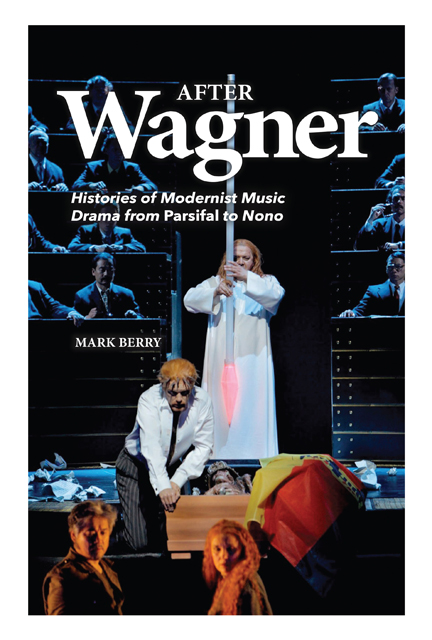Book contents
- Frontmatter
- Contents
- List of Music Examples
- Acknowledgements
- Dedication
- Introduction: ‘After Wagner’
- Part I In the Shadow of German Idealism: From Parsifal to Capriccio
- Part II Composition after the Second World War: From Germany to Italy, and Back Again?
- Part III Performance and the Fruitful Instability of the Work: From Parsifal to Nono
- Bibliography
- Index
4 - Luigi Dallapiccola, Il Prigioniero: Imprisonment, Liberty, and the Word
Published online by Cambridge University Press: 24 February 2023
- Frontmatter
- Contents
- List of Music Examples
- Acknowledgements
- Dedication
- Introduction: ‘After Wagner’
- Part I In the Shadow of German Idealism: From Parsifal to Capriccio
- Part II Composition after the Second World War: From Germany to Italy, and Back Again?
- Part III Performance and the Fruitful Instability of the Work: From Parsifal to Nono
- Bibliography
- Index
Summary
I have so far concentrated upon the Austro-German compositional ‘mainstream’ – doubtless in part an ideological construct, yet one that it would be perverse to discard in dealing with history, philosophy, music, and politics ‘after Wagner’. It is now time to turn south to Italy, as, throughout history, so many Germans have done, not least Wagner and Henze. No one will need reminding that Italy has its own rich operatic tradition, though the extent to which it should be considered ‘Italian’ prior to unification is debatable; nor will anyone need reminding that its values often differed from those north of the Alps.
Indeed, Italian musical tradition, at least from the early nineteenth century onwards, differed greatly from its German counterpart. In the popular imagination, it was operatic rather than symphonic; but that led to something of a reaction during the earlier twentieth century. Busoni, always a figure of interest for Dallapiccola, provided an especially interesting example of cultural ambivalence: living in exile, much of it in Germany, Busoni had explicitly associated himself with the great German tradition. His four operas, all to his own libretti – shades of Wagner here, however post- or even anti-Wagnerian Busoni’s æsthetics – were even written in German. The point is not here to enter into a full-blown comparison, but to broaden our scope and also to bear in mind interaction between the two traditions, especially during the age of Italian composition after Puccini.
It would be perverse to consider Dallapiccola as not in an emphatic sense being an ‘Italian composer’. Nevertheless, his birth and early years remind us that nationality in central Europe – for that is what it is – is generally a far more complex matter, involving varying degrees of partial association, than the bright primary colours of the popular imagination might have one believe. The Istrian town of Pisino in which Dallapiccola was born in 1904 was then part of Austria-Hungary and now lies in Croatia. The composer would point out, many years later: ‘One should not forget that the little Istrian peninsula where I was born lies at the crossing of three borders. When the train stopped at the station in my hometown, the conductor called out: “Mitterburg, Pisino, Pazin”.’
- Type
- Chapter
- Information
- After WagnerHistories of Modernist Music Drama from Parsifal to Nono, pp. 127 - 148Publisher: Boydell & BrewerPrint publication year: 2014



